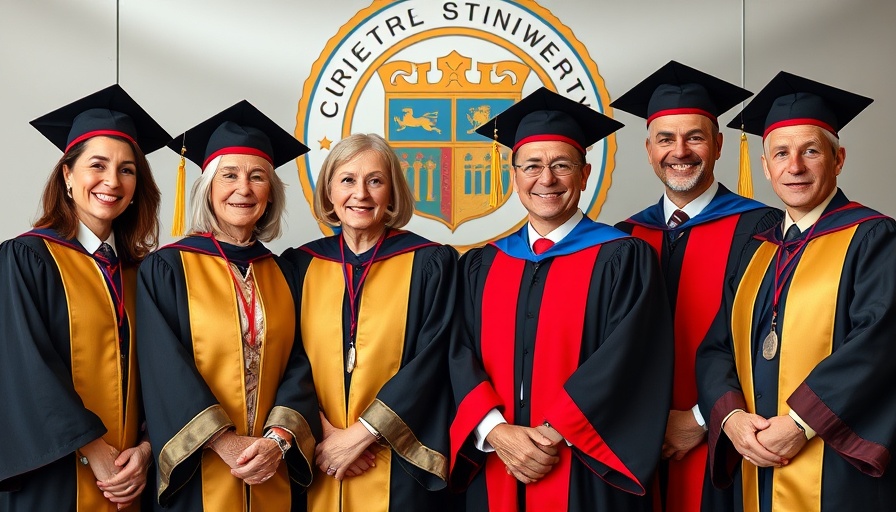
Historic Shift in Leadership at UFS
The University of the Free State (UFS) has made significant strides toward inclusivity and diversity by welcoming its first female Vice-Chancellor and Principal, Professor Sally S. G. Meyer. This remarkable appointment is not just a milestone for the university, but also a beacon of hope for the broader South African academic landscape, where female leadership has historically been underrepresented.
The Importance of Gender Representation in Education
As South Africa grapples with challenges like unemployment rates and educational disparities, initiatives to empower women in leadership roles are more critical than ever. According to the latest reports, female enrollment in higher education has increased, yet the number of women in leadership positions continues to lag. UFS's decision to appoint Professor Meyer could inspire other institutions to consider similar strategies, addressing the gender inequalities that persist in educational environments.
Championing Educational Reforms
Professor Meyer’s leadership comes at a pivotal time when the call for education reforms is louder than ever. With the government’s focus shifting toward digital transformation and skills development to meet the demands of the Fourth Industrial Revolution, her appointment symbolizes a commitment to these vital changes. Meyer’s progressive vision for UFS aligns with the need for educational institutions to adapt quickly and inclusively to evolving economic landscapes.
A Hope for Future Generations
Furthermore, Meyer’s tenure could foster an academic environment that tackles pressing social issues such as gender-based violence, racial equality, and access to education. Her focus on creating a safe and equitable campus could lead to improved student engagement and retention, reflecting a broader commitment to social responsibility and accountability within higher learning.
The University’s Vision and Community Engagement
Under Meyer’s leadership, UFS is set to enhance its community outreach and engagement initiatives, aligning itself with the national discourse on social grants and inclusive development. By addressing critical issues like crime statistics and healthcare system challenges within academic frameworks, UFS could provide students not only with knowledge but also with insight into real-world challenges and solutions.
Conclusion: A New Dawn for UFS and Beyond
The appointment of Professor Sally Meyer as the first woman Vice-Chancellor at UFS is a momentous occasion that highlights the importance of diversity and gender equality in leadership across the educational sector. Her vision reflects a commitment to tackling significant socio-economic challenges in South Africa while uplifting underrepresented communities. As the university embarks on this journey, it sets a precedent for others to follow, inspiring leaders of tomorrow.
 Add Row
Add Row  Add
Add 




Write A Comment